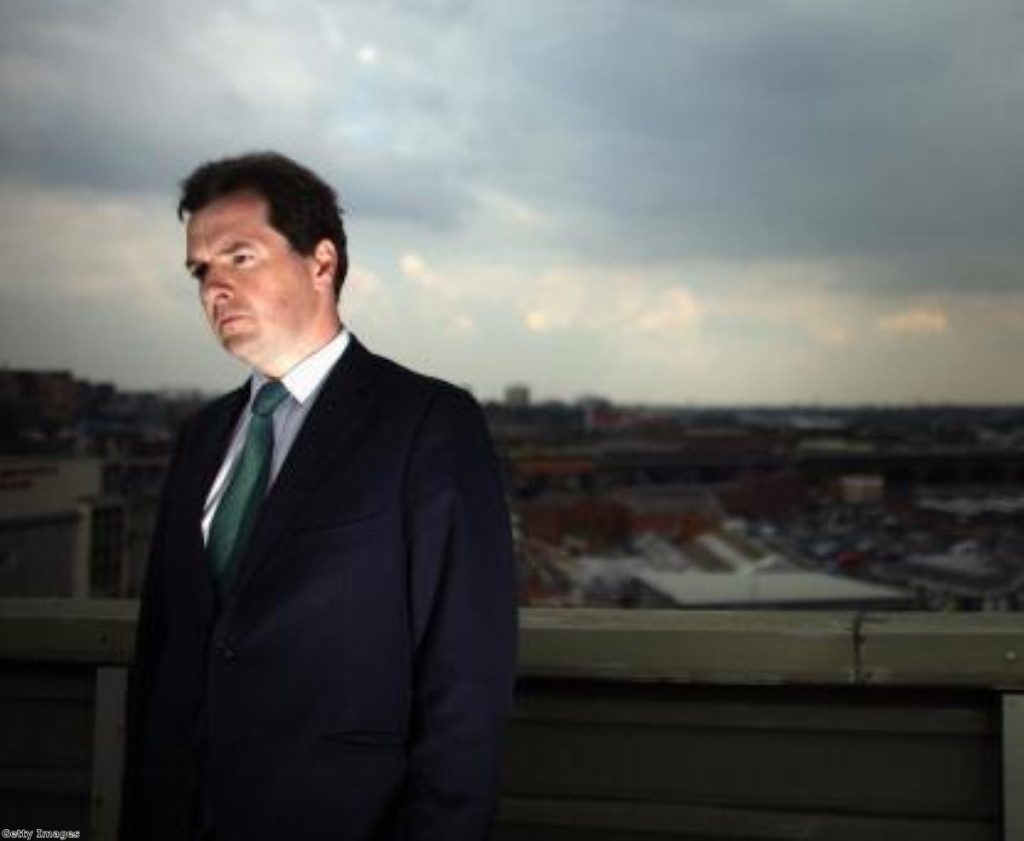Osborne sticks to bank reform timetable despite Commons criticism
By Ian Dunt Follow @IanDunt
George Osborne stuck to a 2019 timetable for bank reform today, despite fierce calls in the Commons for quicker action.
The long-awaited report by Sir John Vickers proposes that banks' retail arms are separated from their investment arms, thereby preventing the 'casino' element of their operations affecting day-to-day personal and business lending.
It would also insist that banks hold capital in place in case of failure, to relieve the burden on the taxpayer.


The report's recommendation for a 2019 deadline quickly came under fire from MPs, consumer groups and trade unions, who want the chancellor to press ahead with the reforms at a faster pace.
Speaking in the Commons today, shadow chancellor Ed Balls demanded that George Osborne "move rapidly to put in place necessary legislation".
Mr Balls called for a detailed implementation plan by the end of the year, as much as possible of the ensuing legislation to be inserted into the pre-existing financial services bill and an independent report into progress in a year's time.
The chancellor refused to be moved, however, saying only some of the relevant legislation could be put in the financial services bill, or else it would delay the introduction of a new regulatory framework.
The Treasury has promised to legislate before the general election in 2015, even if full implementation will have to wait until 2019.
"The proposals set out today kick the overdue reform of the banking sector into the long-grass," said David Fleming, Unite national officer.
"The suggestion to create firewalls in 2019 will bring immediate uncertainty to workers across the sector, while the greedy bankers find ways to manoeuvre around, and lobby against these reforms."
Which? chief executive Peter Vicary–Smith said: "The government must set out a clear and urgent timetable for reform.
"The chancellor should… use the financial services bill, currently being debated by parliament, as the vehicle for the legislation that is required."
Liberal Democrats were also keen to press on with the reforms so that there could be strong evidence of completed reform by the time of the next general election in 2015.
Lib Dem ministers believe that the public will be more sympathetic about the social effects of spending cuts if it can be demonstrated that the government has prevented any future bail-out of the banks.
"No-one's going to wait till 2019. This is not the correct figure, this is just a date by which the whole thing and all the dots, all the 'i's are dotted and 't's crossed and so on," former Liberal Democrat Treasury spokesman Lord Oakeshott told Sky News.
"It's a long-stop date and it's quite different from saying that the main reforms won't be through much more quickly and that's what we're discussing and there's the perfect way to do it in parliament."
"You pass the laws, the rate at which obviously you finalise the details is something else."
The Vickers report also suggests the government oversees the emergence of a "strong challenger bank" out of Lloyds Banking Group's planned sale of 632 branches.
It put the cost of reform at between £4 billion to £7 billion.









